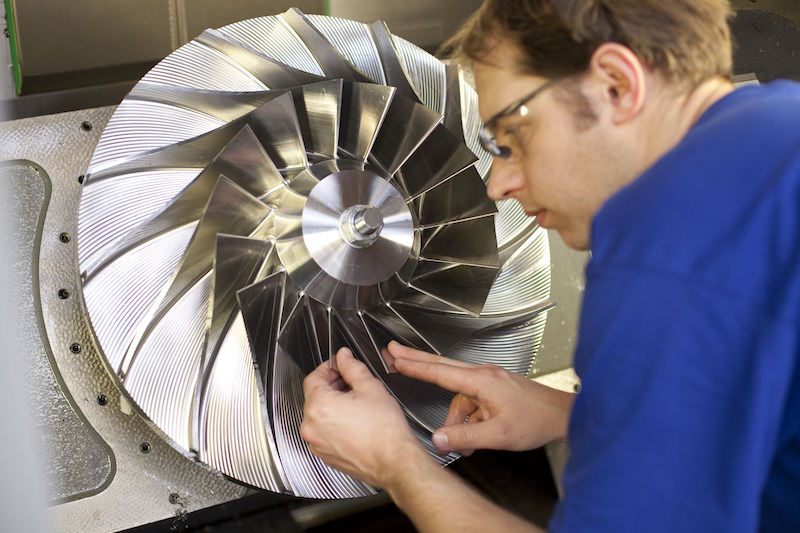After a very difficult year in 2015, the Swiss mechanical and electrical engineering industries (MEM) started to recover in 2016, with new orders rising by 9.5%. At the same time 23% of the industry made a loss on the back of high costs and a 1.8% drop in sales, says the industry association Swiss MEM. Photo source: Swiss MEM The strong Swiss franc is still a challenge for a large number of companies. Developments will depend largely on exchange rates and business trends in key markets, says Swiss MEM. Total exports in 2016 were CHF 63.3 billion (+0.1%). Segments rising the most were precision instruments (+3.8%), metals (+2.7%) and electrical engineering/electronics (+1.6%). While overall revenues might be heading in the right direction, high costs are killing margins. A recent survey shows that 23% of businesses recorded an EBIT (earnings before interest and tax) loss in 2016. In 2014, only 7% made a loss. “These figures are worrying” says Swiss MEM President Hans Hess. “The bottom line is that two years after the euro peg was scrapped, 57% of companies generated either no margin or an insufficient margin with which to invest in the future.” These findings clearly indicate that many companies, particularly SMEs, have still not overcome the shock of the strong franc. The difficulties are also affecting jobs.
Topics:
Investec considers the following as important: Business & Economy, Editor's Choice, Strong franc Switzerland, Unemployment in Switzerland
This could be interesting, too:
Investec writes Swiss inflation falls further in January
Investec writes Catching ski pass cheats – reactions, fines and worse
Investec writes Swiss milk producers demand 1 franc a litre
Investec writes Swiss bankruptcies expected to rise sharply this year
After a very difficult year in 2015, the Swiss mechanical and electrical engineering industries (MEM) started to recover in 2016, with new orders rising by 9.5%. At the same time 23% of the industry made a loss on the back of high costs and a 1.8% drop in sales, says the industry association Swiss MEM.

Photo source: Swiss MEM
The strong Swiss franc is still a challenge for a large number of companies. Developments will depend largely on exchange rates and business trends in key markets, says Swiss MEM.
Total exports in 2016 were CHF 63.3 billion (+0.1%). Segments rising the most were precision instruments (+3.8%), metals (+2.7%) and electrical engineering/electronics (+1.6%).
While overall revenues might be heading in the right direction, high costs are killing margins. A recent survey shows that 23% of businesses recorded an EBIT (earnings before interest and tax) loss in 2016. In 2014, only 7% made a loss. “These figures are worrying” says Swiss MEM President Hans Hess. “The bottom line is that two years after the euro peg was scrapped, 57% of companies generated either no margin or an insufficient margin with which to invest in the future.” These findings clearly indicate that many companies, particularly SMEs, have still not overcome the shock of the strong franc.
The difficulties are also affecting jobs. Over the last two years, a total of 12,600 jobs have gone across the sector, bringing the number employed in these industries to 317,600 by the end of 2016.
An unpublished Swiss Manufacturing Survey done by the University of St Gallen, shows that 46% of industrial companies are considering moving operations abroad within the next three years. The main reason is to reduce production costs. Apart from further innovation, this is the only way businesses can increase their profitability in Switzerland. This chimes with the other surveys which anticipate a decrease in production jobs and an increase in jobs in research, development and project management.
Swiss MEM views recent voter rejection of corporate tax reform plans as an important missed opportunity and welcomes the Federal Council’s desire to quickly come up with a modified package.
Last but not least, the association says that continued uncertainty surrounding Switzerland’s future relationship with the EU is adversely affecting the country’s investment climate.
For more stories like this on Switzerland follow us on Facebook and Twitter.
